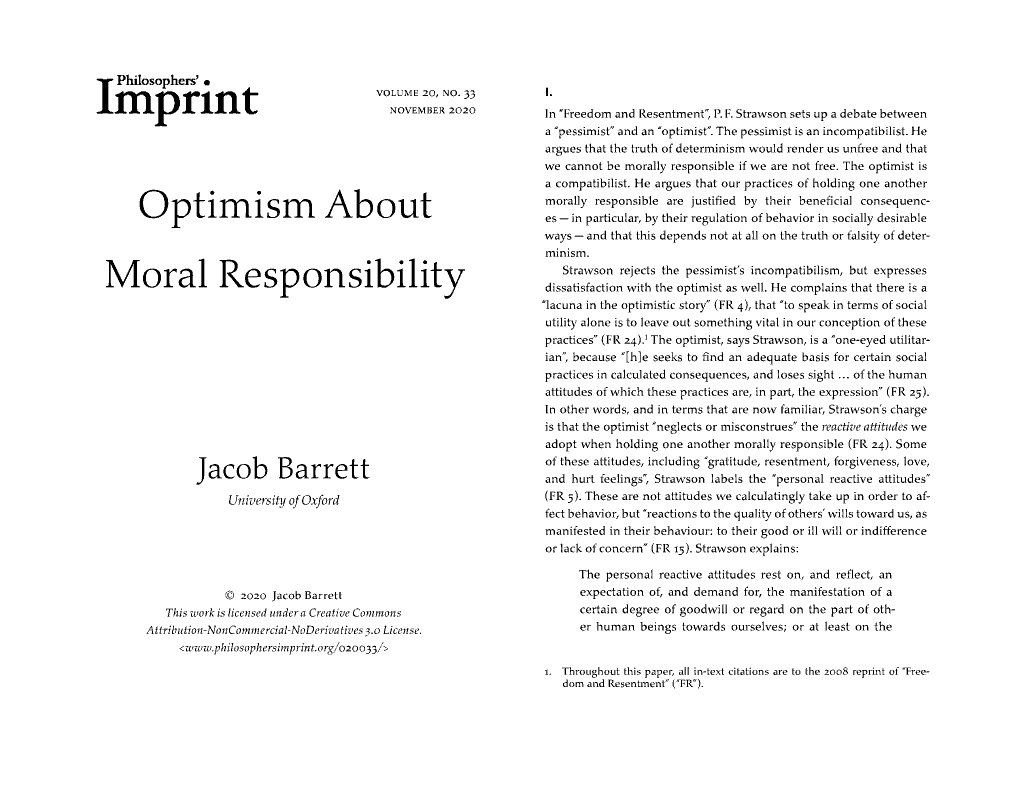Optimism About Moral Responsibility
Skip other details (including permanent urls, DOI, citation information): This work is licensed under a Creative Commons Attribution-NonCommercial-NoDerivatives 4.0 International License. Please contact [email protected] to use this work in a way not covered by the license.
For more information, read Michigan Publishing's access and usage policy.
Abstract
In his classic “Freedom and Resentment,” P. F. Strawson introduces us to an optimist who believes that our moral responsibility practices are justified by their beneficial consequences. Although many see Strawson as a staunch critic of this consequentialist position, his stated view is only that there is a gap in the optimist’s story where the reactive attitudes should be. In this paper, I fill in the gap. I show how optimism can be suitably modified to reflect an appreciation of the reactive attitudes. And I argue that the ensuing position—on which our moral responsibility practices, taken as a whole, are justified both by their regulation of behavior and by their enabling of interpersonal relationships—provides us not only with a plausible justification of our moral responsibility practices, but also with a fruitful framework for evaluating potential reforms.



